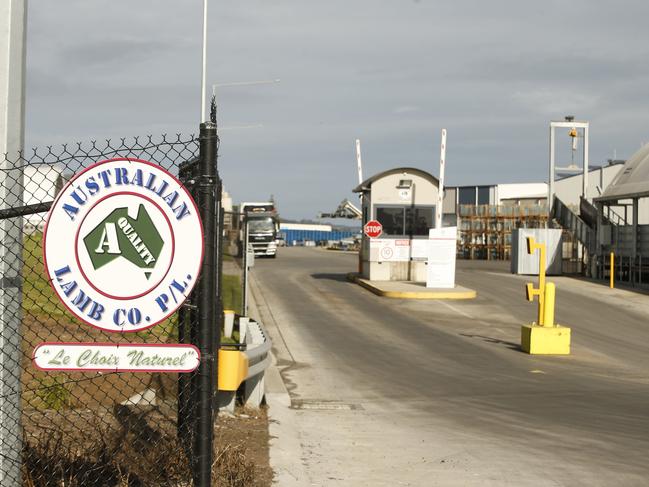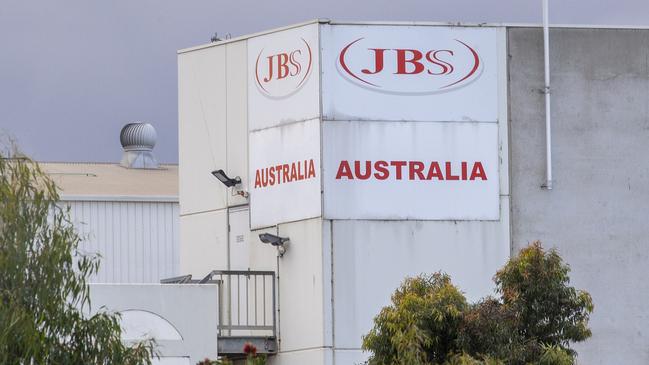China warnings on wheat, cotton
Australian cotton and wheat farmers have been warned they are likely to be Beijing’s next targets in a trade retribution campaign
Australian cotton and wheat farmers have been warned they are likely to be Beijing’s next targets in a trade retribution campaign that is helping China fill its $14bn agricultural buying commitment to the Trump administration while straining its relationship with Canberra.
The Morrison government has been briefed on expected hits to Australia’s $568m wheat and $611m cotton trade to China, which would take the total of agricultural goods banned, disrupted by customs or crippled by tariffs to more than $7bn.
China’s trade restrictions have been extended to timber exports from Tasmania and South Australia, along with more beef suppliers in Queensland and Victoria. The latest moves come as the government negotiates the passage through parliament of foreign influence legislation.
Trade Minister Simon Birmingham used a speech in Canberra on Wednesday to accuse Australia’s biggest trading partner of disengaging from meetings scheduled as part of the China-Australia Free Trade Agreement signed in 2015.
China’s embassy in Canberra denied Beijing was undermining the “letter and spirit” of ChAFTA.
“China has actively fulfilled its obligations under the agreement,” an embassy spokesman said. “In contrast, more than 10 Chinese investment projects have been rejected by the Australian government under the pretext of national security or national interests since 2018.”
Government officials said a five-year ChAFTA review was not expected to go ahead later this month. “After a reasonable start in bilateral engagement, in recent years the Chinese government’s lack of engagement has prevented the use of these structures,” Senator Birmingham said earlier on Wednesday.

Many Australian farmers worry that the trade damage has been exacerbated by China’s commitment to the Trump administration to increase purchases from the US in 2020 by more than $14bn to almost $50bn.
Two Victorian lamb and sheepmeat exporters — the Australian Lamb Company and JBS Brooklyn — have had their Chinese export licences suspended for more than four months after reporting COVID-19 outbreaks. They remain suspended, despite Victoria passing 40 consecutive days without any locally transmitted cases.
While the two Australian plants remain suspended, meat exports to China from the US — which recorded almost 220,000 new COVID-19 cases on December 8 — have continued seemingly without interference.
“There’s one rule for the US and one rule for everyone else,” said a farming source who asked not to be identified because of political sensitivities.
A surging iron ore price has undermined Beijing’s ongoing trade campaign, with Australia on track to record its second highest amount of exports to China.
Despite the highly publicised trade stoush, Australia’s total exports to China passed $140bn by the end of November. Iron ore — Australia’s biggest export to China, worth $85bn in 2019 — is approaching 10-year highs.
Australia-China Relations Institute director James Laurenceson said: “Eight months into Beijing’s campaign to punish Australia by hitting exports, it would have to be disappointed in the results. Their ambitions have been mugged by economic realities, as well as a bit of luck.
The Agriculture Department’s December forecast highlighted the government’s concerns about further hits to Australian cotton and wheat farmers. State-run Chinese companies bought more than $1.3bn of cotton from the US in the three months to July, which analysts believe was linked to Beijing’s purchase commitment made to Donald Trump in January. The Agriculture Department report released on Monday warned China may soon impose trade restrictions on Australian wheat exports similar to those imposed on barley. “Uncertainty has been cast over export sales to China with reports of orders to cease purchases of Australian cotton,” the report reads.
It notes that the average price fall if restrictions were applied was likely to be $34 a bale.
China’s ban on Australian coal also shows no sign of subsiding. Data released by ship-brokers Braemar shows that deliveries to Chinese customers plummeted by 78 per cent in November to 1.4 million tonnes.
Over $1bn of Australian coal also remains stuck off the Chinese coast in 77 ships carrying black-listed cargo, raising fears that Queensland and NSW producers may have to extend mine closures past a planned shutdown period of several weeks over Christmas.
Coal exports to China more than halved to $1.8bn from July to September, down from $3.9bn for the same period a year earlier.
The new ban on timber from Tasmania and South Australia took effect on Monday, as the government negotiated the passage of foreign interference legislation that will allow it to rescind Victoria’s Belt and Road deal.
Pentarch Forestry chairman Malcolm McComb said his company, which operates in Tasmania and exported logs worth up to $100m each year to China, had seen the ban coming and “adjusted”. “We have had a quite large exposure to China but we reduced that once they started signalling,” Mr McComb said.
“We’ve diverted a significant amount of our wood to other markets … Korea, India, Japan, Taiwan, Middle East.”
The ban initially applied to Queensland and Victoria, and has now been extended to Tasmania and South Australia.
The reason given by China – “live forest pests” – was dismissed by multiple industry sources, who said such issues while not unknown did not usually halt trade.
Additional reporting: Perry Williams
More Coverage








To join the conversation, please log in. Don't have an account? Register
Join the conversation, you are commenting as Logout